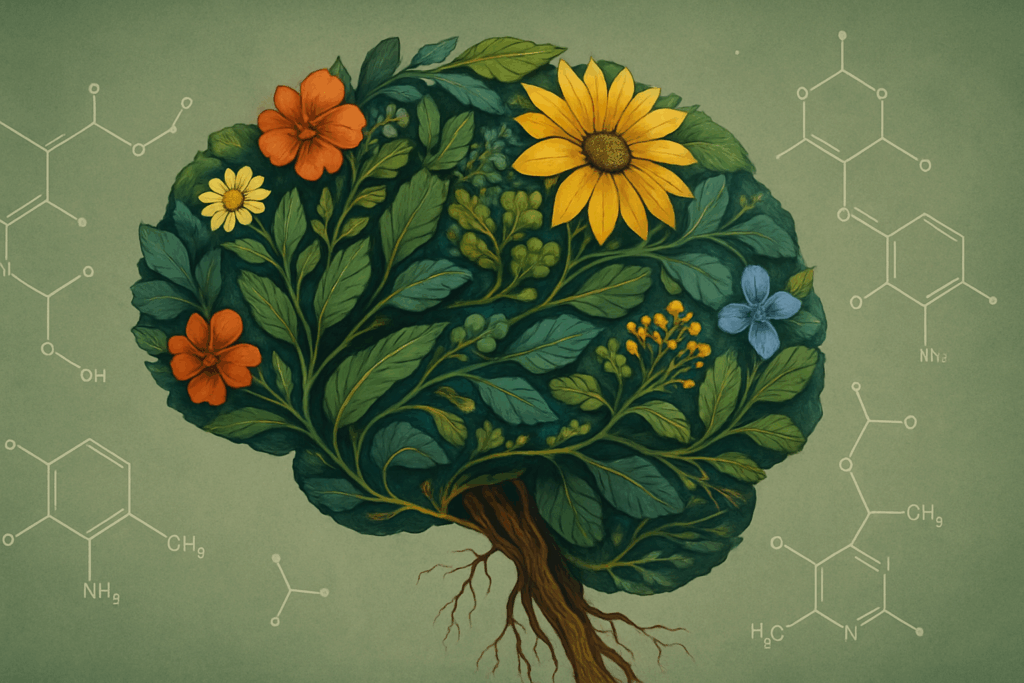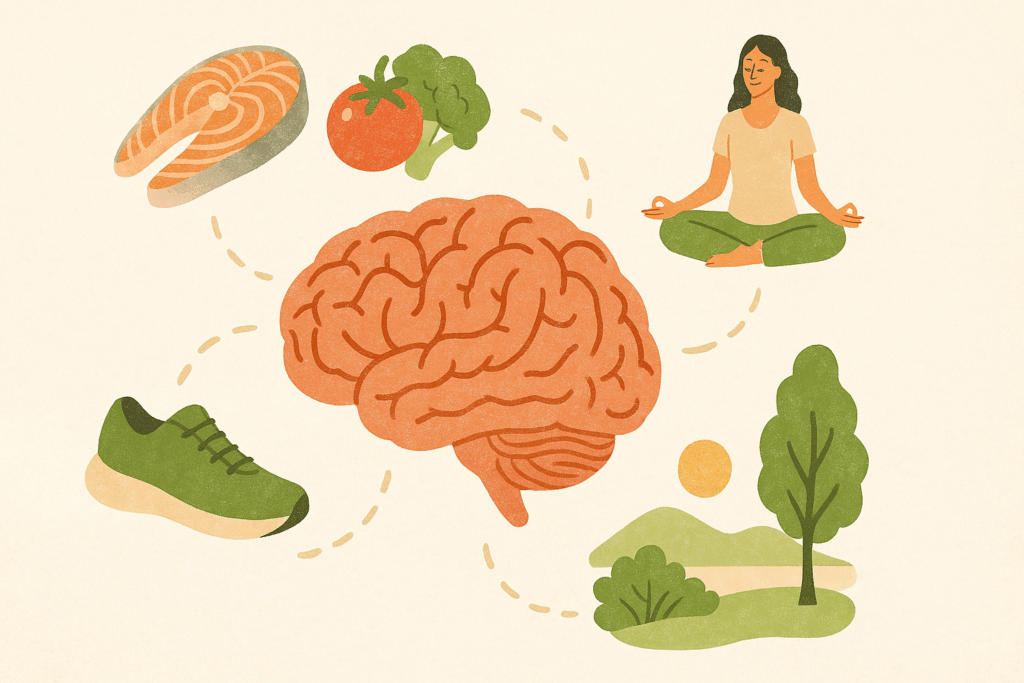The growing concern over consistent access to ADHD medications has led to a pressing demand for reliable options, especially when facing an Adderall shortage. As a result, finding effective Adderall alternatives for adults has become a crucial focus for many individuals seeking to maintain productivity, concentration, and mental clarity. For those who rely on Adderall or similar medications, sudden shortages can cause significant disruptions in daily life, highlighting the urgent need for natural and evidence-based substitutes. In this article, we explore the best natural ingredients and alternative treatments that not only offer cognitive support but also provide sustainable solutions aligned with health and wellness principles.
You may also like: The Vital Ingredient Differences in Vyvamind vs Adderall and NooCube: What Experts Say About Their Natural Benefits
Understanding the Need for Adderall Alternatives
In recent years, shortages of stimulant medications have intensified due to supply chain disruptions, manufacturing challenges, and increasing demand. For adults managing ADHD or similar cognitive conditions, these shortages create critical gaps in care. Turning to substitutes for Adderall during shortage periods is not just about maintaining productivity; it’s about ensuring mental stability, emotional regulation, and a sense of continuity in personal and professional life. Medications like Adderall serve a vital role for many, but the search for alternatives becomes necessary when access is restricted.
Beyond logistical challenges, some adults also seek alternatives to Adderall during shortage scenarios to minimize dependency risks or manage side effects commonly associated with stimulant medications. Additionally, the holistic wellness movement has amplified interest in natural nootropics and plant-based cognitive enhancers that may offer similar benefits without the intense physiological demands of pharmaceutical stimulants.

Key Natural Ingredients Offering Cognitive Support
A wide range of natural compounds demonstrate promising cognitive-enhancing properties, making them excellent candidates for those in search of drugs like Adderall without the pharmaceutical profile. These ingredients often target neurotransmitter systems, blood flow to the brain, or overall mental energy. Among the most notable are caffeine combined with L-theanine, Rhodiola rosea, Bacopa monnieri, Panax ginseng, and Ginkgo biloba. Each of these botanicals and compounds plays a unique role in supporting memory, attention span, executive functioning, and resilience to stress.
For example, L-theanine, an amino acid found in green tea, promotes relaxation without sedation and can balance the stimulating effects of caffeine to create smoother, more sustainable alertness. Rhodiola rosea, a powerful adaptogen, supports mental stamina and reduces fatigue, making it a valuable resource during demanding cognitive tasks. Bacopa monnieri has long been studied for its impact on memory consolidation and mental speed, offering a profound foundation for focus and information retention.

Adderall Alternatives for Adults: Natural Solutions Backed by Science
When evaluating Adderall alternatives for adults, it is crucial to look for options backed by rigorous scientific validation. Several botanical and nutritional compounds show potential in enhancing cognitive performance in ways similar to traditional ADHD medications. For instance, Citicoline and Alpha-GPC are choline donors that facilitate the production of acetylcholine, a neurotransmitter essential for memory and attention. These substances serve as foundational building blocks for improved brain function, offering a new Adderall alternative that is both natural and supportive of long-term brain health.
Lion’s Mane mushroom (Hericium erinaceus) has gained popularity for its role in promoting neurogenesis and cognitive resilience. Studies suggest that Lion’s Mane may encourage the production of nerve growth factors, facilitating better communication between neurons. This effect can support mental clarity, faster processing speeds, and improved mood regulation, providing a holistic option among medications like Adderall for adults seeking sustainable cognitive health.

What to Take If You Run Out of Adderall: Immediate Natural Support Options
Running out of Adderall unexpectedly can be an anxiety-inducing experience, especially if work, study, or critical life activities depend heavily on sustained focus and motivation. Knowing what to take if you run out of Adderall is key to mitigating these challenges effectively. Supplements like Rhodiola rosea, caffeine paired with L-theanine, or even high-dose omega-3 fatty acids can provide immediate cognitive benefits.
Rhodiola’s adaptogenic properties make it a superb option during acute stress and cognitive demand. It can enhance mental endurance and combat fatigue in a relatively short timeframe. Similarly, pairing moderate caffeine intake with L-theanine ensures a smoother cognitive lift without the jitteriness often associated with high caffeine doses. For those seeking a broader approach, omega-3 fatty acids, particularly EPA and DHA from fish oil, have been shown to improve attention and emotional regulation, offering another practical solution among alternatives to Adderall during shortage events.

Natural Ingredient Spotlight: Rhodiola Rosea as a Powerful Substitute
Of all the natural options available, Rhodiola rosea stands out as one of the most potent adderall shortage alternatives. This remarkable herb, traditionally used in Eastern European and Asian medical systems, exhibits robust adaptogenic properties that allow the body and mind to withstand various stressors more effectively. Clinical studies suggest that Rhodiola improves cognitive function, increases stamina, and enhances resistance to physical and emotional exhaustion.
Importantly, Rhodiola’s dual-action support for both mental and physical energy makes it uniquely well-suited for individuals transitioning away from traditional stimulant medications. Unlike medicine like Adderall, which directly stimulates the central nervous system, Rhodiola works by modulating stress response systems and improving mitochondrial energy production, making it a gentler yet powerful option.
Evaluating Other Herbal and Nutritional Adderall Alternatives for Adults
Beyond Rhodiola and Lion’s Mane, other ingredients deserve serious consideration when exploring adderall alternatives for adults. Panax ginseng, with its long history in traditional Chinese medicine, demonstrates effects on cognitive vitality, energy levels, and immune resilience. Its ginsenosides are believed to modulate neurotransmitter pathways, making ginseng a functional player among natural nootropics.
Ginkgo biloba, another ancient botanical, supports enhanced blood flow to the brain, helping optimize cognitive sharpness and memory function. Particularly in aging adults or those with circulatory concerns, Ginkgo offers a non-stimulant alternative that can still yield profound mental clarity. Meanwhile, Bacopa monnieri contributes to neuroprotective effects and memory enhancement, proving itself an indispensable part of any discussion surrounding drugs like Adderall that do not rely on synthetic stimulation.
Finding the Right Medicine Like Adderall in Natural Form
Not all natural cognitive enhancers will work equally well for every individual, and personalization is key. Selecting a medicine like Adderall from natural sources involves considering specific cognitive needs, lifestyle factors, and potential underlying health conditions. Individuals struggling primarily with focus and impulsivity may benefit most from choline donors and adaptogens, while those seeking mood regulation might prioritize ingredients like Lion’s Mane and omega-3 fatty acids.
Moreover, the combination of several natural nootropics often yields superior results compared to relying on a single agent. Formulations that include multiple brain-supportive compounds can mimic the multi-faceted actions of Adderall while reducing the risk of side effects and dependency. Careful titration, professional supervision, and a willingness to experiment can help uncover the most effective blend for each person seeking a dependable new Adderall alternative.
Alternatives to Focalin: Expanding the Natural Treatment Toolbox
For some individuals, Focalin (dexmethylphenidate) rather than Adderall represents the primary stimulant medication of choice. Fortunately, many natural ingredients discussed herein also serve as excellent alternatives to Focalin, offering the same cognitive support mechanisms such as enhanced neurotransmitter function, improved blood flow, and greater neuroprotection.
Similar to managing an Adderall shortage, creating a reliable plan for periods when Focalin is inaccessible involves integrating multiple strategies. Lifestyle interventions, such as sleep optimization, nutrition upgrades, mindfulness meditation, and regular physical activity, further amplify the benefits of natural nootropics. These interventions offer a sustainable and holistic approach to cognitive health that transcends reliance on any single pharmaceutical solution.

Harnessing the Power of Holistic Brain Health
A critical component of identifying effective adderall alternatives for adults involves recognizing the importance of a comprehensive brain health strategy. No single supplement or ingredient will fully replicate the rapid-onset effects of pharmaceutical stimulants, but a combination of nutrient-dense eating, strategic supplementation, physical movement, and emotional regulation can create a profoundly supportive environment for optimal mental performance.
Nutrition plays a foundational role in cognitive resilience. Diets rich in omega-3 fatty acids, antioxidants, and essential vitamins and minerals offer the raw materials necessary for brain repair, neurotransmitter synthesis, and mitochondrial energy production. Supplementing with key nutrients like magnesium, B vitamins, and vitamin D can correct common deficiencies that impair cognitive function. Together, these steps form a sustainable path to mental clarity and executive function.
Frequently Asked Questions: Natural and Practical Insights into Adderall Alternatives for Adults
How can I transition to Adderall alternatives for adults without disrupting my daily routine?
Transitioning to natural substitutes requires a thoughtful approach that prioritizes consistency and monitoring. Begin by gradually integrating a few targeted natural supplements, such as Rhodiola rosea or Citicoline, into your morning routine while reducing Adderall usage under medical supervision. Lifestyle factors like sleep quality, nutrition, and physical activity should be optimized simultaneously to support cognitive resilience. Additionally, tracking your focus, energy, and mood daily in a journal can help you adjust dosages and combinations over time. Consultation with a healthcare professional ensures that any underlying conditions are addressed properly during this transition.
Are there emerging natural compounds that could become the next new Adderall alternative?
Research into nootropics is expanding rapidly, and several emerging compounds show promise as the next big new Adderall alternative. Compounds like uridine monophosphate and phosphatidylserine are gaining attention for their effects on memory, mood, and executive function. Advances in adaptogenic research are also introducing lesser-known herbs like Schisandra chinensis and Eleuthero, which enhance mental stamina and emotional balance. These developments suggest that future natural cognitive enhancers may offer even more sophisticated benefits, potentially combining multiple mechanisms of action. Staying informed about cutting-edge research ensures access to the most innovative options as they become available.
What makes certain natural ingredients superior as a substitute for Adderall during shortage events?
The best substitutes for Adderall during shortage periods are those that act on multiple cognitive pathways without overstimulating the nervous system. Ingredients like Lion’s Mane mushroom stimulate neurogenesis, while Bacopa monnieri supports memory consolidation and stress resilience. Superior substitutes are bioavailable, have minimal side effects, and offer cumulative benefits with continued use. Unlike stimulant medications, they often promote long-term brain health rather than temporary boosts in performance. Carefully chosen blends that address neurotransmission, energy metabolism, and mood regulation provide the most comprehensive support.
How do lifestyle changes amplify the benefits of Adderall alternatives for adults?
Incorporating healthy lifestyle habits can dramatically enhance the efficacy of Adderall alternatives for adults. Prioritizing restorative sleep helps stabilize neurotransmitter levels, while regular aerobic exercise improves blood flow to the brain, supporting cognitive sharpness. Nutrient-dense diets rich in omega-3s, magnesium, and antioxidants lay the biochemical foundation for optimized brain function. Mindfulness practices, such as meditation or breathwork, further regulate stress responses, complementing the adaptogenic effects of many natural nootropics. When combined with natural alternatives, these practices can lead to superior cognitive outcomes compared to relying solely on pharmaceutical solutions.
Can alternatives to focalin offer benefits beyond attention and focus?
Yes, alternatives to Focalin frequently deliver broader benefits that extend into emotional regulation, stress resilience, and neuroprotection. For instance, Panax ginseng not only improves cognitive energy but also enhances mood stability through modulation of dopamine pathways. Omega-3 fatty acids reduce neuroinflammation, potentially lowering long-term risks of mood disorders or cognitive decline. Adaptogens like Ashwagandha support hormonal balance and protect against cortisol-induced brain fatigue. These expanded benefits make natural alternatives appealing for adults seeking a holistic enhancement of mental and emotional health.
What are practical strategies if you need an immediate medicine like Adderall replacement?
When immediate cognitive support is needed, certain strategies can act as a medicine like Adderall in the short term. Combining caffeine with L-theanine offers quick mental alertness without anxiety. Fast-acting adaptogens like Rhodiola rosea can also boost resilience and focus within an hour. Short bursts of high-intensity physical activity, such as brisk walking or interval training, can temporarily sharpen executive function and concentration. Consuming a high-protein, low-sugar meal can stabilize blood glucose and support neurotransmitter balance quickly. Having a “mental emergency kit” with natural options ensures smoother transitions during unexpected shortages.
Is it possible to stack multiple adderall alternatives safely?
Yes, stacking multiple adderall alternatives is not only possible but can be highly effective when done thoughtfully. Synergistic combinations such as Citicoline with Lion’s Mane or Rhodiola rosea with Bacopa monnieri target different aspects of brain function, creating a more balanced cognitive enhancement profile. It’s crucial, however, to introduce one supplement at a time initially to monitor individual effects and rule out sensitivities. Dosage precision and sourcing high-quality, third-party-tested ingredients are also vital to ensure both safety and efficacy. Over time, custom stacks can be tailored to unique cognitive needs and lifestyle demands.
What are realistic expectations for outcomes with Adderall shortage alternatives?
Using Adderall shortage alternatives requires a realistic understanding that results may develop more gradually compared to pharmaceutical stimulants. Natural compounds often need consistent use over several weeks to fully manifest cognitive benefits. While users may not experience the rapid “kick” associated with medications like Adderall, they frequently report more sustainable, stable improvements in focus, memory, and stress tolerance. Additionally, many find that natural alternatives promote better sleep and emotional regulation over the long term. Setting patient, informed expectations enhances satisfaction and long-term success.
Are there unique social and professional advantages to using natural adderall alternatives for adults?
Choosing adderall alternatives for adults can yield distinctive social and professional advantages not often discussed. Natural options typically carry a lower risk of irritability, social withdrawal, or anxiety—common side effects associated with stimulants. Many users report enhanced emotional intelligence, patience, and interpersonal communication skills when using adaptogenic and nootropic stacks. Professionally, maintaining steady cognitive energy without crashes can improve project consistency, leadership presence, and creative problem-solving. These “soft skill” enhancements often go unrecognized but significantly impact career and relationship success.
How can you ensure long-term success when using drugs like Adderall alternatives?
Ensuring long-term success with drugs like Adderall alternatives involves a multi-layered strategy. Rotating nootropic compounds every few months prevents tolerance and keeps cognitive gains fresh. Regular cognitive training activities—such as memory games, strategic planning exercises, or language learning—complement the biochemical support of supplements. Periodic reassessments of lifestyle factors, such as sleep hygiene, diet, and stress management, keep the entire system optimized. Collaborating with healthcare providers familiar with integrative approaches ensures ongoing fine-tuning and early detection of any potential issues. Adopting a proactive, flexible mindset makes it possible to sustain cognitive vitality indefinitely without relying solely on pharmaceuticals.
Conclusion: Empowering Your Cognitive Journey with Natural Alternatives
The search for effective and sustainable adderall alternatives for adults is more than a response to medication shortages; it is an invitation to explore holistic, empowering pathways to optimal brain function. With natural ingredients such as Rhodiola rosea, Lion’s Mane, Citicoline, Panax ginseng, and Bacopa monnieri leading the way, adults have access to scientifically backed tools that can sustain focus, energy, and resilience through challenging times.
While pharmaceutical options like Adderall and Focalin play vital roles for many, the growing landscape of substitutes for Adderall during shortage periods highlights the importance of diversifying cognitive support strategies. Building a robust foundation of natural nootropics, lifestyle modifications, and professional guidance ensures a proactive approach to brain health that can withstand the unpredictable nature of modern medication access.
As awareness grows and more research illuminates the power of natural brain enhancers, adults navigating ADHD, executive function challenges, or high cognitive demands can find effective solutions without sacrificing health, stability, or peace of mind. Embracing these adderall shortage alternatives represents not just a temporary fix, but a transformative investment in long-term mental vitality.
Further Reading:
22 prescription Adderall alternatives for ADHD symptom relief in 2025


